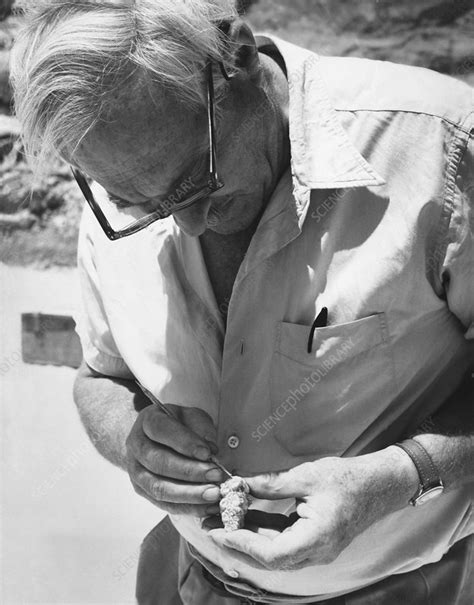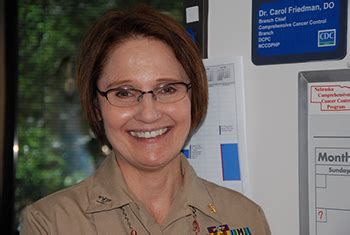A Quote by Louise Leakey
I think when you work on fossils, and you realize that a species is there, and it's abundant for quite a long period of time, and then at some point it's no longer there - and so, when you look at that bigger picture, yes, you realize that either you change and adapt, or, as a species, you go extinct.
Related Quotes
From the point of view of the species, death is part of this whole process. You could say that species have evolved in such a way that individual members last a certain time. Perhaps a certain kind of species would be better able to survive if the individuals didn't last too long. Other kinds could last longer.
Having studied biology really helped me a lot because I quickly understand how biological systems work, and how they fail, and the tragedy of when they fail, because we are dealing with life systems, and when we hear that a species has become extinct, or is threatened, you realize that this could mean that this species will disappear from the face of the earth forever! So that understanding really gives you energy to do something to save it.
When I am at a dinner table, I love to ask everybody, 'How long do you think our species might last?' I've read that the average age of a species, of any species, is about two million years. Is it possible we can have an average life span as a species? And do you picture us two million years more or a million and a half years, or 5,000?
There's always a time in any series of work where you get to a certain point and your work is going steadily and each picture is better than the next, and then you sort of level off and that's when you realize that it's not that each picture is better then the next, it's that each picture up's the ante. And that every time you take one good picture, the next one has got to be better.
I am a member of a fragile species, still new to the earth, the youngest creatures of any scale, here only a few moments as evolutionary time is measured, a juvenile species, a child of a species. We are only tentatively set in place, error prone, at risk of fumbling, in real danger at the moment of leaving behind only a thin layer of of our fossils, radioactive at that.
It takes a certain amount of time and faith to accept or to realize that there is no difference between Him and His name, to get to the point where you're no longer mystified by where He is. You know, like, "Is He around here?" You realize after some time, "Here He is - right here!" It's a matter of practice.
A species has to become pretty intellectually advanced in order to grasp the concept of death in the abstract, and to dream up the idea of immortality. Long before that (in evolutionary terms) all species with brains have the survival instinct in some form. So, I am just saying that there are many existent proofs of species that have one, but not the other.
One must believe that every living thing whatsoever must change insensibly in its organization and in its form... One must therefore never expect to find among living species all those which are found in the fossil state, and yet one may not assume that any species has really been lost or rendered extinct.
The succession of individuals, connected by reproduction and belonging to a species, makes it possible for the specific form itself to last for ages. In the end, however, the species is temporary; it has no "eternal life." After existing for a certain period, it either dies or is converted by modification into other forms.




































